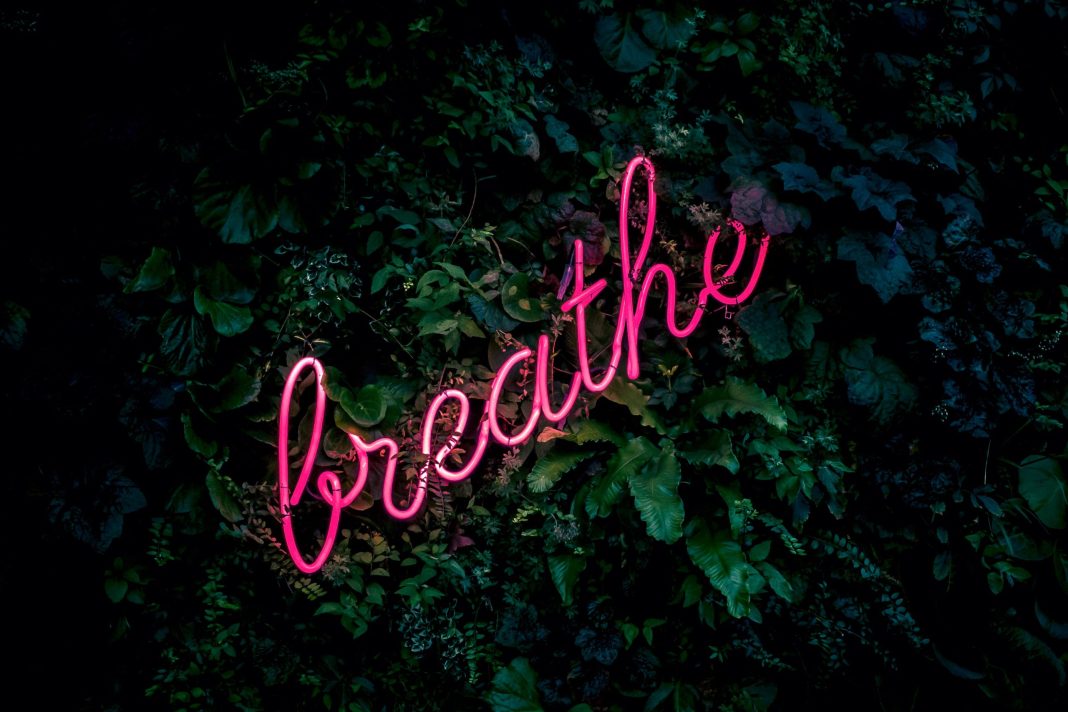Full disclosure: I am not currently engaging in the practices I am about to preach. I have spent the better part of an hour spinning out about a number of things, including the fires I need to put out in my cases, the pile of laundry waiting for me at home, and the deadline for this blog post. I just realized I’ve been holding my breath for at least 30 seconds. I haven’t left my chair in hours. So, before I keep writing, I’m going to take three deep breaths and then go for a walk outside for a few minutes. [Note, I will not do alternate nostril breathing because I share an office with two other people.]
Update: This stuff really works. I feel calmer, clearer, and more energized. My heart is beating at a normal rate. I have eradicated myself from the anxiety loop of “I have so much work to do and I can’t get started because I can’t stop thinking of how much work I have to do.” Instead, I’m just working.
Anxiety can provoke different responses in people, but it often falls into at least one of our three reptilian modes of fighting, fleeing, or freezing – in case it wasn’t obvious, I’m a freeze-er myself. For emerging lawyers, one of the most massive anxiety spin cycles we got trapped in is the bar exam. This anxiety is pretty much inevitable, and it’s actually useful to be real about that and give those feelings space. I am not here to shame anyone for feeling anxious, and, as a bar tutor, I encourage my students to set aside time to face and name the frustrations the bar exam tends to invoke. However, for the rest of the time, it’s important to utilize tools that are not only relaxing, but actually support retention, comprehension, and stamina, which go a long way in bar exam success.
Breathe
I can’t help my students pass the bar exam if I can’t help them breathe. Breathing normally, deeply, and consistently gets your brain the oxygen it needs to work properly. 98% of our oxygen receptors are located in our lungs’ lower lobes, so in order to meaningfully trigger the brain’s relaxation response, we actually need to breathe into our bellies, much more deeply than we’re used to doing. Conversely, the shallow and quick breathing we often do can actually trigger stress responses, so it can be helpful to check in with yourself about whether you’ve been low-key hyperventilating or even holding your breath while deep in the study hole. Forgetting to breathe is so common, that there are even apps designed to remind us. But if you don’t want your phone buzzing at you (and because you can’t bring it into your bar exam,) you can write the word “BREATHE” at the top of whatever page you’re working on and let it serve as a reminder throughout the test.
Move
It’s important to give our brains some rest by waking up our bodies. Movement enhances blood and oxygen flow and can actually stimulate brain cell production and health. This cell production includes development of our hippocampus, the part of the brain responsible for memory, which comes in handy when you’re expected to regurgitate rules across fourteen different areas of law. While studying, allow yourself ten to twenty minutes every now and then for a walk around the block, a short dance break, some stress-reducing yoga poses, or whatever movement feels comfortable for you.
During longer exercises, such as PT’s, MPT’s, and MBE’s, see if you can actually get your timing to a place where during the bar exam, you’d be comfortable taking a few minutes for a stretch or a walk to the bathroom. While this may seem impossible when faced with the exam’s time constraints, sometimes a quick stroll during the test can offer the clarity and reset required to help you get past a particularly confounding moment.
Laugh
Serotonin is an antidepressant, painkiller, stress-reducer, and has even been linked to curing cancer. Even in the pits of bar exam distress, we can trigger our serotonin with laughter or, if you’re in the exam and avoiding the wrath of fellow test-takers, smiling. During study, make sure you’re peppering your breaks with your favorite funny show, or something else that makes you smile. And, when you’re in the exam, feel free to write “SMILE” directly under “BREATHE.” Your serotonin doesn’t care if you’re faking it, and will do its job regardless.
Meditate
Mindfulness is the practice of being fully, gently conscious and present without judgment or reaction. Practicing mindfulness through meditation helps relax your brain, clears it of clutter, and builds memory, energy, resilience, and immunity. If meditation is new to you, maybe there’s a community center or yoga studio in your area where you can meditate with others. Or, if you’d rather try it out on your own, there are plenty of online resources that can walk you through the how’s and why’s of meditation.
One of the great things about meditation is that it’s mobile. You can literally do it anywhere, anytime (UCLA law professor Victor Narro even advocates for mindful moments at red lights.) Resources are mobile too. The Insight Timer App is a great tool for meditators, and has guided meditations, music, or just a silent timer that will gently call you back from meditation and into your work, more centered and ready than you were before.
More guided meditations can be found through UCLA’s Mindfulness Awareness Research Center here.
Drink
Specifically, water. Your brain is 85% water, and it uses 25% of the water you drink to work optimally. Even minimal dehydration can impair cognitive function. So while your impulse may be to escape bar exam anxiety with a bottle of Scotch, try a bottle of fresh water first – at least until you hit “Submit” at the end of your last exam day.
Stop
My students often come to me for permission to take a break. First, I tell them they don’t need my permission – they know themselves and what they need. Second, I let them know that if they need to hear it from someone else, I’m happy to tell them “Yes!” Our brains need rest. When I was a bar taker, getting words onto the page sometimes felt like trying to squeeze toothpaste from an emptied tube. When I was intentional about breaks, my brain could recover enough for me to actually be more productive for the time I was working, rather than overworking myself without actually getting enough done.
Being unintentional about breaks can look like stopping and starting every few minutes due to panic cycles and made-up distractions like “Oh, was that my phone? Maybe it’s an emergency” and then “Oh my phone again – another emergency?” This kind of “breaking” only prolongs your study day beyond the bounds of your peak productivity time, and can lead to the feeling of treading water rather than learning and developing as a bar taker. Breaking with intentionality looks like setting aside a substantial and meaningful period of time – be it 30 minutes or two days. Whatever fear you may have of taking time away from your studies can be eased by how refreshed and ready you feel when you get back to it.
Sleep
As law students, there was something expected, and even glorified, when it came to the brief-writing all nighter. But staying up all night stops being sexy with the bar exam. Sleep deprivation impairs cognition and concentration, in addition to other serious harms. A full night’s sleep is a required ingredient for a healthier, more productive study process. To help maximize your sleep, try avoiding screens at least 30 minutes before going to bed, and change your phone’s daytime blue light to red light. In addition to keeping you functional, getting proper sleep is also a good way to start regulating your sleep and study schedule in preparation for the test, so that you can get used to being up and working by the exam’s typical start time.
Eat
While intense studying can often mean eating whatever is within arm’s reach, see if you can find comfort in wholesome foods–like proteins, whole grains, and veggies–instead of the typical fried treats that can feel like friends when things get stressful. Try stockpiling so-called brain foods, which are reported to support cognitive health and energy.
Connect
Law school, lawyering, and the bar exam can trigger depression, anxiety, hopelessness, and isolation which may require more help than a walk around the block or a bowl of whole grains can offer. If you feel that you would benefit from talking to a therapist, then definitely reach out for that support. There is a movement towards building mental health access, with many practitioners casting a particular focus on the toxicity of the legal profession. New social media platforms, such as Ootify, are springing up in order connect community members with mental health professionals immediately, while also engaging in stigma-clearing and de-shaming work around how we approach mental health. So please reach out for help and support – whether from friends, family, or licensed professionals. Once the bar exam is over, the real work begins, so finding support and building community early on can help you not only in bar season, but throughout your career.
Additional resources for managing bar exam stress can be found at Mind Over Bar, Bar Exam Mind and in the Bar Exam Toolbox’s own Mindfulness archives.
MORE BAR EXAM RESOURCES:
You Can Beat The Bar Exam. Here’s How.
Maximize Your Bar Exam Essay Score In One Step
How To Memorize Bar Exam Outlines
How To Stay Motivated During Bar Prep
3 Steps To Improve Your MBE Score
How much time is needed to study for the bar exam?
How to avoid the 3 biggest mistakes first-time bar exam takers make
A three-step plan for those who fail the bar exam
Alison Monahan is the founder of The Girl’s Guide to Law School®, which is a leading resource for women (and some men) embarking on a legal career. Alison is also a co-founder of the Law School Toolbox® and Bar Exam Toolbox® which provide free resources, tutoring and a variety of courses and tools to help law students and bar exam takers succeed with less stress and anxiety.


